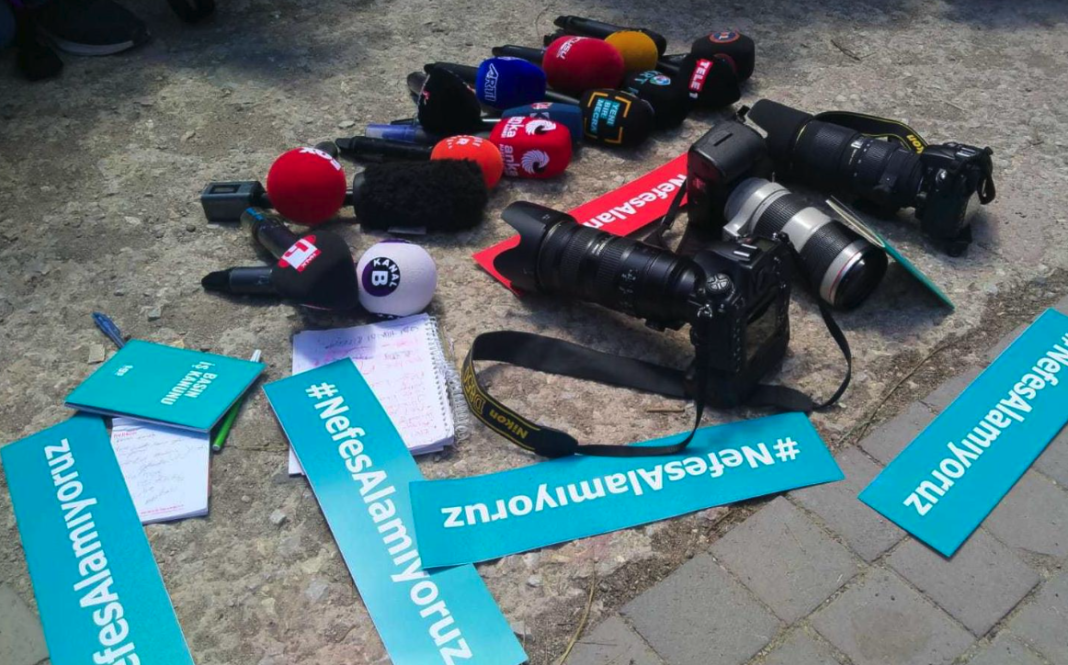The government of Turkish President Recep Tayyip Erdoğan, which has clamped down on media freedom at home, has now co-opted journalists working at government-friendly news outlets into becoming tools of cross-border repression, according to Frankie Vetch at the Coda Story. Stockholm Center for Freedom reports on June 13, 2023.
Vetch says that such cooperation has “allowed the state to reach outside Turkey’s borders to intimidate journalists and dissidents who have sought refuge in Western Europe and North America.”
Turkish journalists living in exile have been targeted by the pro-government Sabah daily, owned by the Turkuvaz Media Group, which revealed their home addresses and published secretly taken photos.
“German authorities have legitimate concerns about the safety of Turkish journalists living in exile,” Vetch said.
The German police in May raided the offices of the Sabah daily in Frankfurt and briefly detained Sabah representative in Europe İsmail Erel and the daily’s news coordinator for its Europe edition, Cemil Albay, following raids on their apartments.
A local German prosecutor told the media that the journalists had been charged with the “dangerous dissemination of personal data.” It later emerged that the journalists were being accused of spreading private information about some Turkish journalists in exile such as investigative journalist Cevheri Güven, who was targeted last year on the front page of Sabah, which published secretly taken photos and his home address in Germany.
In July 2021 Erk Acarer, an exiled journalist, was attacked “with fists and knives” in the courtyard of his apartment building in Berlin. Later that month, German authorities began investigating Turkish nationalist organized crime groups operating in Europe after the police found a hit list of 55 journalists and activists who had fled Turkey.
In addition to Güven and Acarer in Germany, the Sabah daily has also targeted other journalists in exile — Ekrem Dumanlı in the US and Abdullah Bozkurt, Levent Kenez and Bülent Keneş in Sweden — revealing their addresses and publishing secretly taken photos on its front page.
Abdurrahman Şimşek, news coordinator for the Sabah daily, who had been “mapping” political dissidents from Turkey in Europe, gave a Danish journalists association a false identity and address. Şimşek, who is suspected of having links to Turkey’s intelligence agency, tracked political dissidents in Europe and targeted people whose extradition is demanded by the Turkish government.
The journalists are among the thousands of people who left Turkey in the aftermath of a failed coup in July 2016 to avoid a government-led post-coup crackdown targeting critical journalists as well as non-loyalist citizens.
Turkey’s efforts at transnational repression against critics abroad have not abated, and President Recep Tayyip Erdoğan’s government continues devising new ways to intimidate opponents and suppress dissent.
A report by Freedom House on transnational repression revealed that the Turkish government has committed 132 incidents of direct, physical transnational repression and has relentlessly pursued exiles associated with the Gülen and Kurdish movements since 2014.
According to Reporters Without Borders (RSF), 90 percent of the national media in Turkey, which was ranked 165th among 180 countries in the RSF’s 2023 World Press Freedom Index, is owned by pro-government businessmen and toe the official line.

